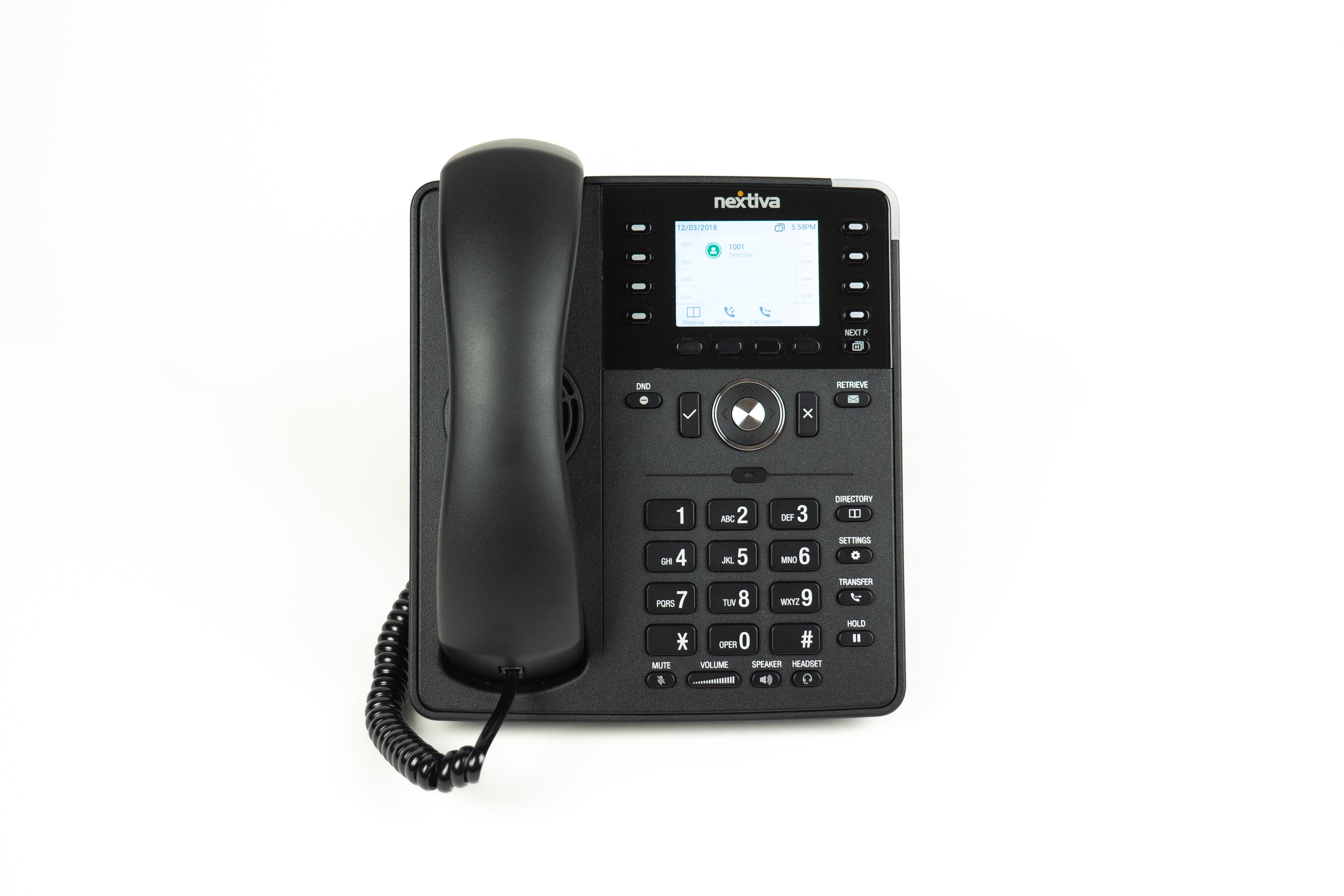
10 Advantages of Telephony Integration With CRM
 Jack Hodges
Jack Hodges

Jun 29, 2022
∙
10 min read

Telemarketing
Uncover the potential of telephony integration with CRM in this insightful blog post, as we discuss the top 10 advantages that can elevate your sales and customer service processes. Learn how this integration can improve your team's performance and streamline your business operations.
Key takeaways:
- Enhanced customer experience through personalized interactions
- Streamlined workflows and increased efficiency
- Improved lead management and tracking
- Access to valuable call data and analytics
- Strengthened team collaboration and communication
Table of Contents
Telephony software helps call centers to facilitate long-distance voice conversations with prospects and leads over the internet, typically via Voice over Internet Protocol (VOIP). This technology allows agents to connect with potential customers and move them through their sales cycles in a telemarketing context.
A CRM phone system (or CRM telephony integration) combines your existing telephony software with a customer relationship management (CRM) system—software that lets you manage customers in your call center. Integrating telephony software with a CRM helps agents track calls, access account information, and maintain strong relationships with customers.
In this guide, learn the benefits of CRM telephony integration and why you should incorporate telephony software with a CRM built for call centers like FiveCRM.
Access to Account Information
Integrating telephony software with a CRM allows you to instantly access customer account information such as names, phone numbers, email addresses, previous interactions, and purchasing histories. That helps agents focus their efforts on prospecting customers rather than wasting time searching for account information on several systems.
Access to account information can also help agents establish a rapport with people over the phone. For example, agents can view previous purchases and ask customers whether they would be interested in similar products. That can improve upselling and cross-selling opportunities in your organization and drive revenue.
Analytics
CRMs can be categorized based on distinguishing features. There are three types of CRM systems:
- Standard or operational CRMs help you manage customer relationships.
- Collaborative CRMs let you communicate customer relationship information with different departments in your organization.
- Analytical CRMs also generate metrics about customers, helping you identify patterns and trends in data.
You might benefit from an analytical CRM because it generates powerful data analytics about various aspects of your call center operations. Integrating your telephony system with a CRM allows you to discover which prospects are most interested in your products and services or learn which demographics are the easiest to move through your sales and marketing funnels. The most popular CRM analytics include customer lifetime value (CLV) and customer acquisition cost (CAC).
With access to analytical information, agents can improve lead generation and management opportunities and turn more prospects into bonafide customers.
Defined Call Lists
CRM telephony integration helps you fine-tune your call lists, ensuring agents can connect with the most valuable prospects over the phone. When using the latest account information in your CRM, you can remove customers not interested in your products from call lists and prioritize leads based on demographic or other information.
With more effective call lists, agents can reduce the idle time between calls and focus their time on nurturing more leads. That can result in more successful sales outcomes and prevent agents from wasting time on lead opportunities that go nowhere.
Improve Organizational Productivity
Telephony systems can route calls to suitable agents, improving productivity in your organization. Customers can connect with the most qualified agents who cater to their specific circumstances. Say a prospect is interested in a product but needs more information before purchasing that product. Routing can direct that prospect’s call to an agent with knowledge of the product, increasing the chances of a sale.
When integrating a telephony system with a CRM, qualified agents can access real-time information about a prospect, making call routing even more productive.
Built-In Email Campaigns
Some CRM systems have built-in email marketing features, helping agents improve their omnichannel marketing strategies. Instead of just prospecting customers over the phone, agents can send marketing materials via email and improve sales.
Integrating a CRM with telephony software allows you to communicate with customers via email and send targeted campaigns to people in your call lists. For example, you might want to send an email with information about your product after cold calling someone, increasing brand awareness and encouraging that person to learn more about your product’s features.
Reach More People
CRM telephony integration means you can automatically dial prospects on your lists. Instead of manually contacting prospective customers, agents can reach more people in a quicker timeframe and focus on their selling techniques.
Telephony integration with CRM can also improve record-keeping when reaching more prospects. Agents can update customer records during and in-between calls and add notes that help other sales reps in your organization. For example, you can edit contact information and ensure you have the most up-to-date phone numbers and email addresses for future communications.
Appointment Setting
One of the most significant benefits of CRM software with telephony integration is the ability to set appointments during and after calls. Say a customer is interested in a product during a cold call but wants to talk to a sales rep at a more convenient time. An agent can create an appointment over the phone and send details about this appointment to the customer via email.
Not all CRMs have appointment-setting features, so choose a system that lets you schedule follow-up calls and in-person meetings.
Call Guides and Scripts
By combining your telephony system with a CRM, agents can access call guides and scripts that help them navigate calls and develop relationships with customers on the other end of the phone. You can create your own call guides and scripts on a CRM system or use pre-formatted templates.
Call guides and scripts ensure agents convey important communication points during a call and help you comply with any data governance frameworks in your jurisdiction. Again, not all CRMs offer this feature, so choose a system that does.
Data Governance
Data governance has become a massive concern for call center managers in almost every industry. That’s because organizations can receive fines for not complying with legislation like GDPR and HIPAA when managing customer information over the phone. Thankfully, the best CRMs let you adhere to data governance frameworks by storing data in a safe environment and preventing agents from accessing data that’s not relevant to them.
CRM telephony integration can also improve overall compliance in your call center. These systems automate many of the administrative tasks associated with call center management, helping reduce human error that can lead to data violations or even data breaches.
Monitor Agent Performance
CRM analytics not only measure customer-related outcomes in your call center but can track agent performance. After integrating your telephony system with a CRM, you can access metrics and key performance indicators that tell you how well agents perform. You can use this information for performance reviews or training. For example, you can ascertain which agents convert the most prospects to customers, how long agents spend on calls, and how many calls agents take within a specific timeframe. The best CRM systems display this analytical information via dashboards, wallboards, reports, and visualizations, helping you identify patterns and data trends.
Conclusion
These are just some of the advantages of integrating telephony with a CRM. You can better achieve your telemarketing goals, track calls, and manage relationships with prospective customers. When choosing a CRM phone system, consider pricing, features, and the benefits that system will bring to your business.
FiveCRM is the CRM built for call centers. You can integrate it with telephony technologies and make customer relationship management easier for your agents. Get FiveCRM now.
FAQs
Q: What is telephony integration with CRM? A: Telephony integration with CRM refers to the seamless integration of telephone communication systems with Customer Relationship Management (CRM) software. It allows businesses to connect their phone systems with CRM platforms, enabling features like call tracking, call recording, click-to-dial, and automatic call logging within the CRM interface.
Q: What are the advantages of telephony integration with CRM? A: Telephony integration with CRM offers several benefits for businesses, including:
- Enhanced Customer Service: Access customer data and history during calls, enabling personalized and efficient service.
- Improved Call Handling: Efficient call routing, queuing, and forwarding features ensure calls are directed to the right person or department.
- Streamlined Workflows: Automate call logging, notes, and follow-up tasks within the CRM, reducing manual data entry and saving time.
- Comprehensive Call Analytics: Analyze call metrics, such as call duration, wait times, and call outcomes, to gain valuable insights for performance evaluation and optimization.
- Increased Productivity: Click-to-dial functionality and screen-pop with caller information streamline call initiation and minimize time spent searching for customer details.
- Advanced Reporting: Generate detailed reports on call volumes, conversion rates, and agent performance to measure the effectiveness of sales and marketing efforts.
- Improved Collaboration: Share call recordings and notes within the CRM, facilitating collaboration among team members for better customer management.
- Integration with Sales Processes: Link calls to opportunities, leads, or deals, allowing sales teams to track call interactions and align them with their sales pipeline.
- Call Monitoring and Coaching: Supervisors can monitor live calls, provide real-time coaching, and ensure quality assurance for customer interactions.
- Scalability and Flexibility: Telephony integration can scale with business growth and adapt to changing communication needs, providing a flexible solution.
Q: Can I integrate any telephone system with my CRM? A: The compatibility of telephony integration depends on the CRM platform and the telephone system you are using. Many CRM providers offer integrations with popular phone systems or provide APIs for custom integration. It is advisable to check with your CRM provider or consult with a telephony integration specialist to determine the compatibility and available options for your specific setup.
Q: Is telephony integration secure? A: Telephony integration with CRM can be secure if proper measures are taken. It is essential to ensure that your CRM and telephony systems have robust security features, such as encryption protocols and access controls. Additionally, following best practices like regularly updating software, implementing strong passwords, and monitoring for any vulnerabilities can help maintain the security of your integrated system.
Q: How can I get started with telephony integration with CRM? A: To get started with telephony integration:
- Assess your business requirements: Identify the specific telephony features you need to integrate with your CRM.
- Select a compatible CRM and telephony system: Choose a CRM platform that offers telephony integration options or supports custom integration with your chosen telephone system.
- Consult with experts: Seek guidance from CRM and telephony integration specialists who can assist in setting up and configuring the integration based on your business needs.
- Train your team: Provide training to your team members on how to use the integrated system effectively and leverage its features for improved communication and customer management.
Michael King says...
"I can’t think of a time where a client has requested something that we weren’t able to do with FiveCRM. Unlike most systems, it has a lot of flexibility."

Managing Director, Senior Response
JAINE HUSBANDS SAYS...
“Each client, and each of their campaigns, has its own unique specifications. We essentially needed to set up mini CRMs on one platform to meet those requirements.”

Operations Director, Team Marketing
Why wait?
Start improving your outbound efficiency now, with the most customizable Sales solution on the market.